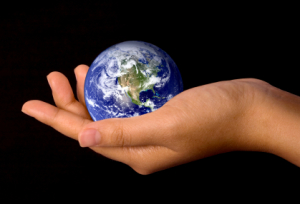The Making of Peacemakers
 The following quote by the Dalai Lama is one of my favorites:
The following quote by the Dalai Lama is one of my favorites:
“The planet does not need more successful people. The planet desperately needs more peacemakers, healers, restorers, storytellers and lovers of all kinds.”
If you, like me, believe this quote to be true, then how can we, as parents, guide our children toward becoming peacemakers, healers, restorers or storytellers?
Let’s first look at the composite of people who engage life in a way that brings themselves and others to a place of peace, healing, and love. Who are they? How do they become this way? When do they start to become this way? What can we do, as parents, to help them to become this way?
Who Are They?
Peacemakers, healers and lovers of all kinds have compassion. They have an awareness of the seen and unseen, an appreciation of the spirit or essence of being, the natural curiosity to dream and imagine, and the ability share their values with the world. These individuals embody peace and are, quite simply, love.
How Do They Become this Way?
At the core, these people have engaged their hearts and souls as well as their minds. When the heart and the soul are involved, people enter and explore life more fully, with greater intent and portent than when the heart and soul are not involved.
When Do They Start to Become this Way?
I think we are all born this way. I think every single human being on the planet is born with the heart and soul fully engaged and full of love. So, the question becomes, how do we STAY that way?
What Can We Do, As Parents, to Help Our Children STAY this Way?
In today’s goal-oriented, striving world, how do we keep the heart and souls of our children fully engaged? How do we keep them full of peace, compassion, curiosity, connectedness and love?
It is more than just isolating our children from today’s influences that we deem negative. As, at some point, these same children will need the skills and knowing to navigate the world as it is today. There is a requirement of integration and understanding of how we operate as a society that a peacemaker, healer or restorer needs to know to allow them to influence others.
So then, how do we protect these future peacemakers, healers, restorers, storytellers and lovers?
In the Beginning…..
When our children are young, our decisions and influences directly and largely impact how our children are engaged. We can certainly, therefore, with mindfulness and intent, provide a foundation for compassion, curiosity, inner-awareness, connection to the essence of being and ability to relate to others. We can do this through our choices for the tone and tempo of our children’s daily lives.
There is a quietness and simplicity that embodies each of these attributes, so there is a need to be separate from the onslaught of media and distraction of over-scheduling. Peace, inner knowing and connectedness need space and quiet to breathe.
We do not need a scientific study to tell us of the solace we find as we hike in the woods, walk along a beach, or lie in a meadow and look at the clouds. Our hearts and our souls NEED this on a regular basis.
So, we can choose to live more quietly and with more engagement. We can be role models by expressing more love and compassion with ourselves, our families, friends, and loved ones. We can commune with nature, immerse our senses in art and beauty, connect with spirit (with or without formal religion), and allow tremendous amounts of time just exploring and discovering our inner and outer worlds together.
We can find communities and schools that align with these values. We can surround ourselves with people who share these values. We can begin as we mean to go on – with our hearts full, our souls connected and our minds focused on what is truly important. This works beautifully when the children are completely under our, and only our, influence.
As Our Children Grow…..
However, the realities of navigating through our days are completing different when our children are 2 or 3 years old versus when they are 11 and 12 years old and beyond. The pressures from peers as the children age heats up as they grow. By the middle of elementary school, the children start noticing what activities their friends are doing, what clothes they are wearing, what grades they are getting, and what television shows they are watching.
As for the adults, we may begin questioning what our child knows or doesn’t know, how he or she is doing in school, what activities he or she is doing, and how he or she is developing. Depending upon circumstance, there could be additional pressure on where he or she is going to go to school at the next level.
We may have begun our ‘parent lives’ by surrounding ourselves with people who share our values, yet as our children grow, so do their worlds. Their worlds include many realms; schools, instructors, coaches, teams, friends, employers, more friends.
There is that world out there and we need to stay engaged within it to stay integrated. Remember, these future peacemakers, healers and storytellers need to be able to connect with mainstream society in order to have influence in the world. So, we will be operating within society and navigating society’s influence with our own. We will be living among, having conversations, and making decisions with influence from other parents, school leaders, coaches, teachers and friends: in a word – society.
Unless we are completely off the grid, we are verifying our choices based upon criteria that society dictates. This is precarious ground as it takes tremendous vigilance, constant minute course correction and remarkable courage to walk a middle path of being fully integrated in mainstream society while holding a completely different measuring stick. There is no external compass that society has defined for the making of peacemakers, healers, restorers, storytellers and lovers of all kinds.
However, we must define a measuring stick and use that to guide our conversations and interactions. Instead of our conversations focusing on what activities our children are involved in, what clothes they are wearing, what new technology they want, or where they are getting into school, we can focus on how wonderful the day is, how many times we laughed, or what kind thing happened that day.
With our peers, we can talk about how our children are developing with respect to being peacemakers and storytellers. We can actually have conversations about what good people our children are, how they navigate their world with grace and courtesy, and what choices we need to make to foster this behavior.
We can also guide our choices, activities and conversations with our children. We can talk about how gracefully the wind blows through the trees, how great the decision to defend a friend was, and how helpful it was to share a lunch with another child.
When we get home, we can all lie down on the floor in the living room and talk about the colors we see when we close our eyes, about what sounds we heard today that surprised us, and make a plan on where to read that special book before going to bed. When our children are older, we can remind them that each day still needs to begin with a hug, that skipping is not only for little ones, and that the world needs their unique qualities. That remaining true to themselves and their special powers is exactly what they are supposed to do in this life.
When making decisions, we can hold each decision to a different set of criteria. Instead of holding ourselves to society’s criteria, we can hold ourselves to our ‘peacemaker’ criteria. We can ask different questions when making a decision about a school, activity or set of friends.
Since no one has developed a measuring stick for the making of peacemakers and storytellers, we need to develop our own and let it guide us in our choices and influences in our children’s lives.
What are the Differences in Measurement Criteria?
The following is not a comprehensive list for each category, but a notation of some different questions to ask when making decisions.
|
Measurement |
Society’s Path |
Peacemaker’s Path |
| Schedule | Are you occupied?Are you doing something?Are you being kept busy? | Do you have quiet time?Do you have playtime?Do you have time to engage your imagination & your heart?Do you have lots of time to just ‘be’, to do absolutely nothing to see where that leads?Does your schedule permit activities that feed your soul? |
| Activities | Are you well rounded?Are you learning new things?Are you doing what your friends are doing? | Are you having fun?Do you gain more of yourself by doing these activities?Are you doing too many activities? |
| Friends & Acquaintances | Who are their families?Where do they live?Where do they go to school?What do the parents do?Are they good kids? | Are your friends true to themselves?Do they respect you for who you are?Do they make you laugh?Do they make you a better person (more compassionate, curious, kind)?Are the people you spend time with interested & interesting? |
| School | Will you be able to get into a good school for the next level?Are you learning everything you need to know? | What type of person will you become by attending this school?Are the children who attend this school interesting, engaged & passionate? |
| Grades | Are you getting good grades? | Have you learned what you need to learn? Do you know the material? |
| Accomplishments | What awards have you gotten? | Did you do your best?Did you have fun? |
| Higher Education | What is the best school you can attend?What connections with influential people can you make?Will you be able to get a good job when you graduate? | Is this school going to help you:Remain curious?Be interested in what & how you are learning?Retain your passion & thirst for knowledge?Are you going to be able gain knowledge & experience to do what you love? |
| Appearance | Are you well groomed?Do you have the latest gadgets, clothing, & accessories?Do you look young & fit? | Do your eyes sparkle?Do you smile a lot?Do you have laugh lines?Do you have energy?Do you feel healthy & happy? |
| Work | What is the best job you can get?How can you work your way to the top?How much money can/do you make?What is your title/position? | Did you follow your heart? Are you passionate about your work?Do you make a difference in the world?Are you doing your soul work? |
| Bottom Line: Success | Are you comfortable? Do you have lots of friends & family? Do you have a good job? Do you have lots of material things? Do you have it all? | Do you laugh often? Is your heart happy and your mind challenged?Are you making the world a better place? Are you the very best version of yourself? Are you being true to your soul? |
The measurement criteria for society’s path is not bad, it’s just different. Each criteria path is looking for a different end result. Society asks how can we make successful people who get results and the peacemaker criteria asks how do we make happier, more engaged and kinder people who live life to the fullest and spread love and joy wherever they go. Living life through this lens is very different and makes for different choices.
We can be role models and guide our children to always engage our hearts and souls. In the mundane and the extreme, we can connect with our hearts and souls to ensure that we are using them as our guides and not our minds. Our hearts and souls will lead us onto the right path.
If we believe that “The planet does not need more successful people. The planet desperately needs more peacemakers, healers, restorers, storytellers and lovers of all kinds.”, then we need to start living like we believe it. We need to start making different choices and helping our children remain compassionate, curious, engaged, self-aware, and connected to the essence of being while we help them develop the ability to relate to others.
Imagine the world we would live in with more peacemakers, healers, restorers, storytellers & lovers of all kinds.
Namaste.
Kim


Beautiful, Kim.
Thanks Janine. I just love the Dalai Lama. He is so inspiring.
Thanks also Jan for your kind words. I’m glad you like the site.
Love your chart of measurement criteria. This is a great way to reflect on what “success” really looks like.